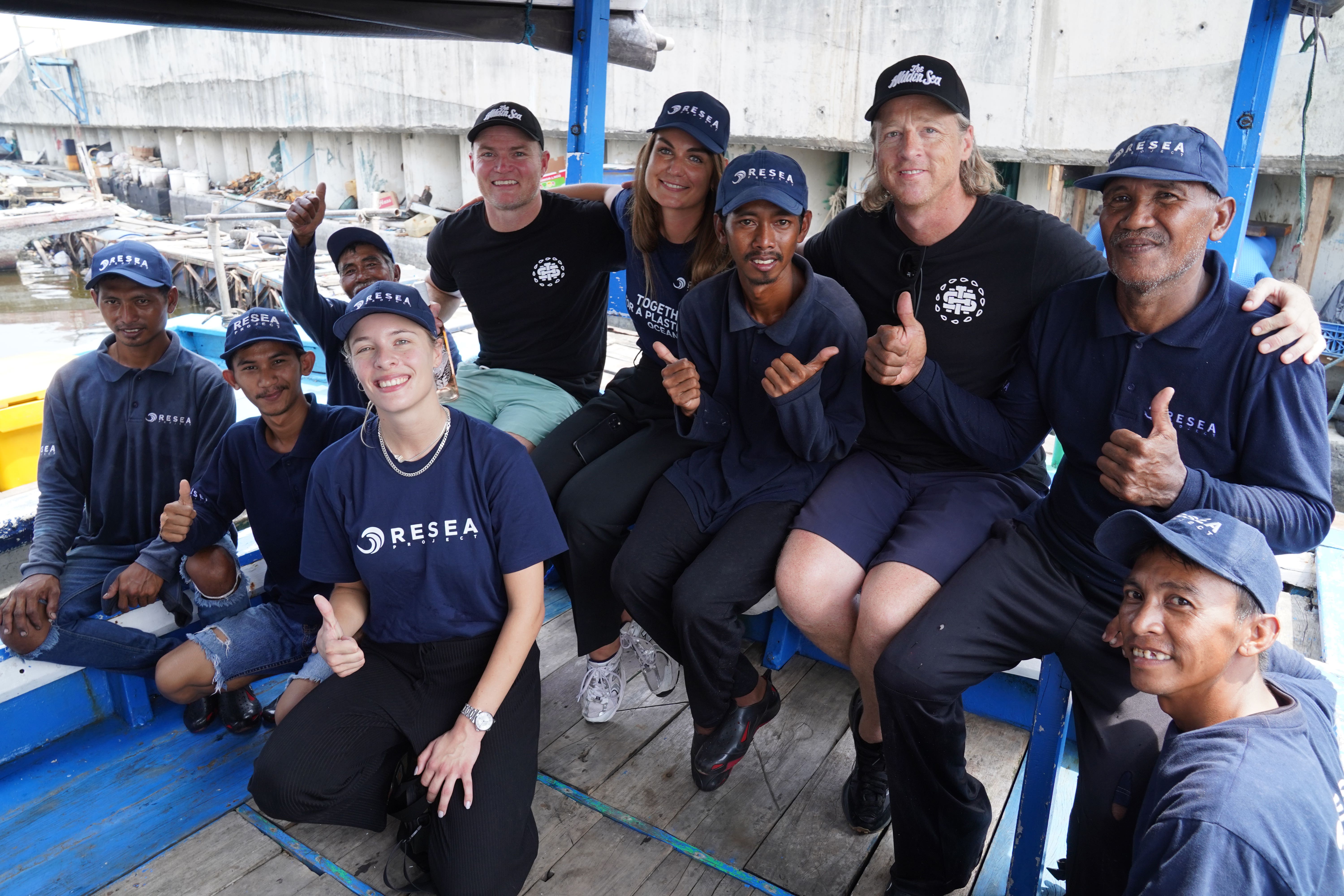UK wine drinkers help remove 10m plastic bottles from polluted sea
Eco-conscious wine brand The Hidden Sea aims to remove the equivalent of a billion bottles from the world’s oceans by 2030

Wine drinkers in the UK have helped remove the equivalent of 10 million plastic bottles from one of the world’s most polluted seas.
And the two business brains behind environmentally conscious brand The Hidden Sea have a mission to remove a billion by the end of the decade.
Entrepreneur Justin Moran and former Aussie rules footballer turned wine-maker Richie Vandenberg visited Indonesia to see for themselves how their product is making inroads into the daunting problem.
The upbeat pair, who invited the PA news agency to see how the operation with their collection partner works, momentarily fell silent when they visited an island made entirely of waste, a few miles from the capital, megacity Jakarta.
Crunching in wellies through what seemed like millions of plastic bottles, cups, shopping bags, straws, toys and food wrappers, Mr Moran, 48, said: “We are literally trashing the ocean with plastic, it is confronting and overwhelming, it is an epic crisis.”
The polluted shoreline shifts on every tide as parts wash out to sea, but more is added from a nearby river, with the rubbish collecting against mangrove trees to make an astonishing sight.
Earlier, Mr Vandenberg had jumped in the warm, shallow waters of the Java Sea which would normally be inviting on a steaming day under the tropical sun.
But he was swimming in a continuous current of plastic waste which stretched from the coast to the horizon.
He said: “There’s every kind of plastic here that you can imagine.
“It feels like I have fish around me but it’s not, it’s just plastic everywhere.
“We have to stay the course on this, we have to do our bit. This really is uncool.”
The friends set up The Hidden Sea with a promise to the consumer that every bottle sold would fund the removal of the equivalent of 10 plastic bottles from the sea.
That is priced into their range of Australian reds, whites and roses, which typically sell for £8 to £9 in the UK.
The removal process is run by ReSea Project, which pays a team of 75 people in Indonesia to collect and sort plastic dumped in rivers and the some of the world’s most polluted seas.
The team, some of them former fishermen, are paid decent wages to go out on the water in small boats and haul in waste using nets.
Their catch is brought to the shore to be cleaned then painstakingly hand-sorted into different types of plastic to be reused.
ReSea’s work is traceable and verifiable, meaning The Hidden Sea and its consumers can be sure the environmental claims are being met.
The wine business has paid for the equivalent of more than 19 million plastic bottles to be removed, with UK sales representing more than 10 million.
Neither of the founders consider themselves conservationists but both love the sea and frequently swim in it.
Mr Vandenberg, 45, from Melbourne, said: “What we really wanted to do, by coming here to Jakarta, was see it with our own eyes – just the enormity of the issue that we’re dealing with.”
Both men were inspired by the teams grafting to haul boatloads of rubbish from the sea every day.
Despite tough economic times, the British shopper is backing the mission.
Mr Moran, who lives in Copenhagen, said: “We’ve removed over 10 million single-use bottles or equivalent out of oceans and rivers because of the UK consumer, so that proves to us the model is working.
“It proves to us that the UK consumer increasingly really cares about this plastic waste crisis.
“We’re very specific when we talk about ocean, not oceans – there is only one ocean so no matter where the plastic enters, it ends up in the ecosystem, in any ocean anywhere around the world.
“It affects us all, it’s in our food chains.”
Both businessmen said the worldwide economic downturn should not affect efforts to protect the environment, and both refused to be daunted by the scale of the problem.
Mr Vandenberg said: “There have been times when I’ve been completely overwhelmed and I’m like, ‘How are we going to fix this?’, and then you just keep reminding yourself and you’ve just got to remain positive that we have to start somewhere.
“And the more awareness we’re able to build, and of course the more product we’re able to sell, the bigger impact we can have.
“The big takeaway for me is what we’re actually doing is actually having an impact.”
Bookmark popover
Removed from bookmarks